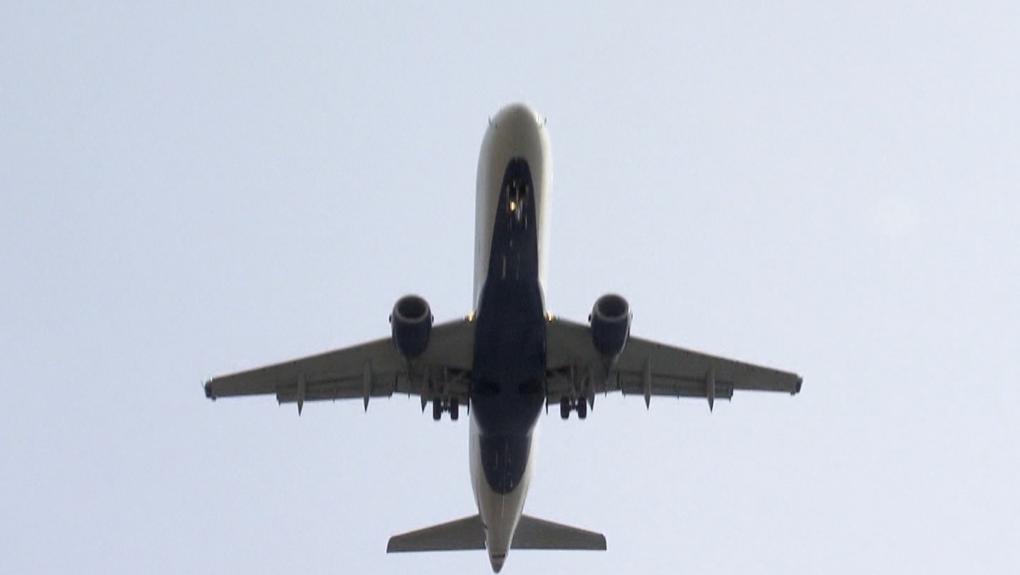
One of the busiest travelling seasons of the year is just around the corner, so airlines and air passenger rights advocates want to make sure you’re ready to fly.
The Edmonton International Airport (YEG) is expecting an average of 25,000 passengers passing through each day for the rest of the month.
The airport is estimating that by the end of the month it will have reached 7.8 million passengers this year, an increase of 4.3 per cent from last year.
That number is also 96 per cent of pre-2020 volumes.
“People want to get back, they want to travel, but the capacity just hasn’t been there,” said communications manager Erin Isfeld.
“That’s what we’re starting to see now, is that airlines are opening more capacity.”
The busiest days for travel this month are Dec. 20, 23 and 27, according to the airport.
Some of the most popular flight destinations during the holiday season are Cancun, Phoenix and Puerta Vallarta.
To help navigate the busy airport, YEG has some travel tips:
- arrive two hours before domestic flights and three hours before international flights;
- check flight status online before arriving;
- check in online to save time;
- confirm baggage allowances ahead of time and follow Canadian Air Transport Security Authority baggage rules;
- leave gifts unwrapped since they may need to be inspected;
- book a spot in the security line, available between 4:30 a.m. and 12:30 p.m., screening preparation tips are available online;
- book parking reservations;
- make advance customs and immigration declarations before arriving.
The Canada Border Services Agency also reminds travellers that gifts being brought into the country must be declared.
There will also be choirs, carollers, craft stations and more throughout the month to help give the airport a festive atmosphere.
Know your rights
As people get ready to fly out to see friends, family or just relax on a beach somewhere, Dr. Gabor Lukacs, the president of Air Passenger Rights, wants flyers to know their rights.
If your flight is delayed or cancelled due to reasons within the carrier’s control, like maintenance or crew shortage, airlines have a legal obligation to put you on the next available flight departing in nine hours, whether it’s the same airline, a partner airline or a competitor airline if need be, according to Lukacs.
It also doesn’t have to be in the same class. If the next available flight only has business class seats available and you originally booked economy, the airline has to book you into business class and can’t charge you for the difference, Lukacs added.
Alternatively, the airline could move someone else into the business class seat and put you into the now-vacant economy seat.
In a situation where the delay or cancellation is not within the carrier’s control, such as a snowstorm grounding flights, the rules are the same but the timeline increases to 48 hours.
These rules come from the Air Passenger Protection regulations.
“They cannot say what we often hear, and that’s an excuse we hear all the time, ‘Sorry we don’t have a commercial agreement with airline X,’ … and the answer is, ‘I don’t care what your agreements are, here’s the law. You have to comply with the law,” Lukacs said.
“Another pitfall is that airlines love to, in some situations, try to push a refund on you when your flight is canceled and you still want to travel … and the answer is, ‘Madam, sir, I do not accept a refund. I expect you and demand that you rebook me in accordance with the Air Passenger Protection regulations, failing which I will hold your company liable for my expenses.’”
He recommends staying calm, professional and serious, despite such wording potentially sounding dramatic or harsh.
“What we have seen is that when you are being firm, when you are actually challenging, politely, professionally, the airline agents about what they are doing, miraculously … all of a sudden you have a seat that you should have been put to begin with,” Lukacs said. “A lot of these policies are built by the airlines to frustrate passengers.
“They know what the law is, they know what they should be doing, but it is too expensive from the airline’s perspective and they think, ‘Well, how many people are going to really follow through with their rights?’”
He adds the importance of following through if you threaten to hold an airline accountable and that certain costs incurred due to delays, cancellations and lost luggage can be sought in small claims court.
“Don’t threaten with a gun which is not loaded, legally speaking, if you threaten to sue someone, you better make good on that,” he said.
“The only way to stop these issues from happening again and again and again every year is if passengers stand up for their rights and are willing to hold the airlines accountable.”
With files from CTV News Edmonton’s Amanda Anderson